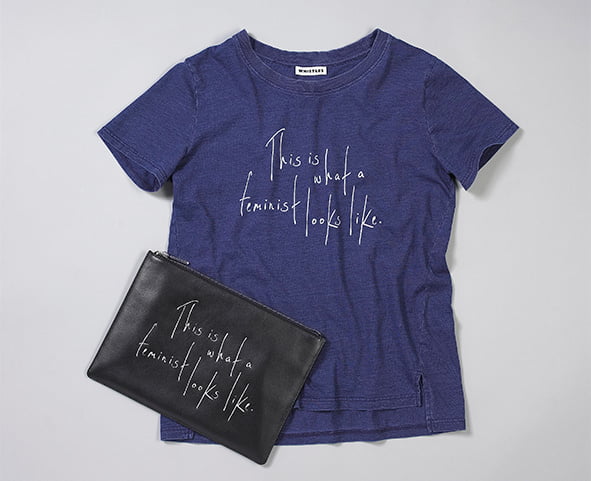Feminism has become popular. Not in a way that makes being a feminist easy (we are always irrational and angry, after all!), but in a way that makes it a viable currency, a buzzword. The popularization of feminism is making it look like a fad. Feminism has been made fashionable by celebrities (ranging from Beyonce to Priyanka Chopra and several others) who ‘realized’ that they are feminists or ‘support’ feminism. It has been pulled into conversations by advertisements that elucidate female empowerment before they sell something that guarantees it. It has been made into hashtags like #heforshe (just as a side note: how would we react to something like #sheforhe?). It has become cool.
Of course, the irony of this transformation is not lost on people who resolved the confusion about their identities through feminism. For an ideology that constantly subverts dominant and normative manifestations of gender and sexuality to suddenly become popular, is disorienting, to say the least.
A subversive buzzword?
A buzzword is literally defined as ‘a word or phrase, often an item of jargon, which is fashionable at a particular time or in a particular context’. When Time published a list of buzzwords that should be banned, it included ‘feminism’ in it, evoking a wide range of reactions. Loudest among these was the idea that feminism is not a buzzword at all. The publication apologized eventually, stating that their intention was merely to decry the altered way in which it is being used and not belittle what feminism originally stands for. But the fundamental fact is, when feminism enters popular discourse, it alters itself.
Feminism has wound its way into, through and around popular culture since its inception. Its relationship with the mainstream has forever been in a state of flux- much like any subversive ideology. As the definitions of mainstream shift, these demarcations and connections become harder to pin down. So when Feminism becomes a buzzword, firmly entrenched within the popular, it seems to straddle an uncomfortable seat. Is it a part of the mainstream? What does it subvert now? Is it still subversive in the first place? Does that mean its work is done?
There is no denying that feminism needs popular culture to spread. It requires the mainstream, for more than one reason. And yet, is this the ‘kind of feminism’ that we want being popularized?
A faux kind of feminism?
Feminism now comes wrapped snugly around cultural products. It forms a shiny veneer that seems to assert the morality of the product that it envelops. Look, it seems to yell, I am morally unimpeachable because of my token tribute to feminism (consider the way feminism is ‘inserted’ into Gangaajal, or the gimmicky Ki and Ka). The glitziness and glibness of this envelope is enough to set a feminist’s teeth on edge. Because if there is one thing that a person who holds feminist ideas close to their breasts (all puns intended) knows, it is the fact that feminism is not a neat ideological position. It doesn’t sit shining neatly on top of world views; it either rips through them or subsumes them.
This popularized, neat-and-tidy version of feminism has been condemned by several feminists. Buzzword feminism is not the right kind of feminism, they claim. And in all likelihood, it is not. But its inception has exposed yet another fault line in modern feminism- our need to ensure that every feminist is our kind of feminist.
The term mansplaining is eminently useful. It describes that head-patting male condescension that many females have chafed against since decades. It assigns a name to that rant that men indulge in when they justify the ethics of their position, pontificating to women who seem to be lesser mortals in their eye. But then there is no term for feminists who do the very same thing to other females.
White feminists have been accused of explaining to women of color what ‘proper’ feminism means. Feminist theorists explain to other women why they must not enjoy a song or a film because it is demeaning. Older women explain to younger ones what they must do to be ‘good’ feminists (case in point: Madeline Albright’s support for Hilary Clinton). And rich women preach feminism to poorer ones how they can stand up for themselves ‘correctly’.
And we have all been guilty of this some time. I know I have been. So perhaps, we need a new label. Feministsplaining. To describe how one feminist will tell others, condescendingly enough, that they have gotten feminism wrong, after all. All labels aside, the actual phenomenon and our propensity to indulge in it, both deserve introspection.
This does not mean that feminists must not call out hypocritical manifestations of the idea (read: Deepika Padukone’s ‘My Choice’ video), but rather, that we must keep in mind that a monolithic Feminism is actually transforming into multiple feminisms and there is more than one way to define it. The balance is tricky and it is not always possible to strike it. We are all just learning about each others’ ideas about feminism and are likely to make mistakes. But as theorist Hilde Hein remarks,
“Feminists must define themselves and their own world without succumbing to the arrogant presumption that they are choosing for all, yet being prepared to undertake the responsibility that they are choosing for some.”
D-uh feminism
A by-product of feminism becoming a fad, and a buzzword, is that it is now altogether too easy to proclaim oneself to be a feminist. All you need is a T-shirt. This shoulder-shrugging, casual proclamation of feminism has been called D-uh Feminism in this piece and the term fits the bill perfectly. Feminism is about more than a casual statement about equality. It is more than a passing statement like: I believe everyone is entitled to equality, so I think I am a feminist. Feminism takes a lot of doing.
It requires a constant evaluation of personal reactions to manifestations and representations of homonormativity and patriarchy (and god knows they are everywhere). It requires a serious commitment towards understanding how rules of gender and sexuality play out in practice. It asks for a constant reevaluation of beliefs that have been institutionalized for years. It demands that the right questions be asked and that the answers remain open.
It is not something that can simply picked up as a hat to try on. It is a lens that is developed by experience and introspection. We all find our brand of feminism in different ways and it stays with us. The process that allows to us to find our feminist feet is integral to the beauty of ideology.
I learned my feminism from my grandmother, who taught me that a classically ‘feminine’ activity like knitting can be phenomenally feminist. But I also learned it from her the lines around her mouth when she was told it must remain a hobby. I learned it from my mother who taught me never to apologize if I decide I do want it all- a career and a family. But I also learned it from her eyes, clouded at the end of the day with the pursuit of keeping it all. I learned it from my sister who taught me that a gorgeous body can come in all shapes and sizes. But I also learned it from her clenched fists when she was told she was too fat. From an aunt who taught me that being alone can be beautiful and from my male friends who taught me that a person’s gender has little to do with their feminism.
The stories that teach us our brand of feminism are as instructive as the idea itself. They are beautiful, diverse and poignant narratives of self-examination. And when buzzword feminism allows you to say, ‘d-uh, I am a feminist’, it is being reductive of the sensitive and liberating journey of a feminist’s self-discovery.
In India, feminism stands at a very strange cusp. It is finding its feet. While the western world is negotiating with ideas like ‘neo-feminism and ‘post-feminism’, we are beginning to recognize that women can head households, and that they have a right to terminate a marriage if they are being made to feel inferior. We are just catching up to the fact that sexual abuse is not funny (consider the praise the film Fan has earned for that one dialogue). We have just understood that it is alright to fight traditions if they restrict our freedoms. We are waking up to the tremendous subversive potential of feminism. To be told at this stage that feminism is popular, after all, is like being told that our work is done. And I cannot think of anything more dangerous than that.
The way buzzword feminism has been received in the in other parts of the world ought to teach us some things. It’s a good idea let it teach us that we need to stop judging each others’ idea of feminism. But is also a good idea to let it teach us that feminism is fabulously complicated, gloriously empowering and rigorously inventive. It is too large to be a buzzword. And too rebellious to be a fad.
About the author(s)
Damini has recently acquired her post-graduate degree in Communication and Journalism from Mumbai University. Since she graduated, she has been engaged in research work and has presented papers at international conferences. Apart from pegging away at geeky (mostly feminist) literature, she has also conducted gender sensitization workshops. She is currently working as a news curator.




